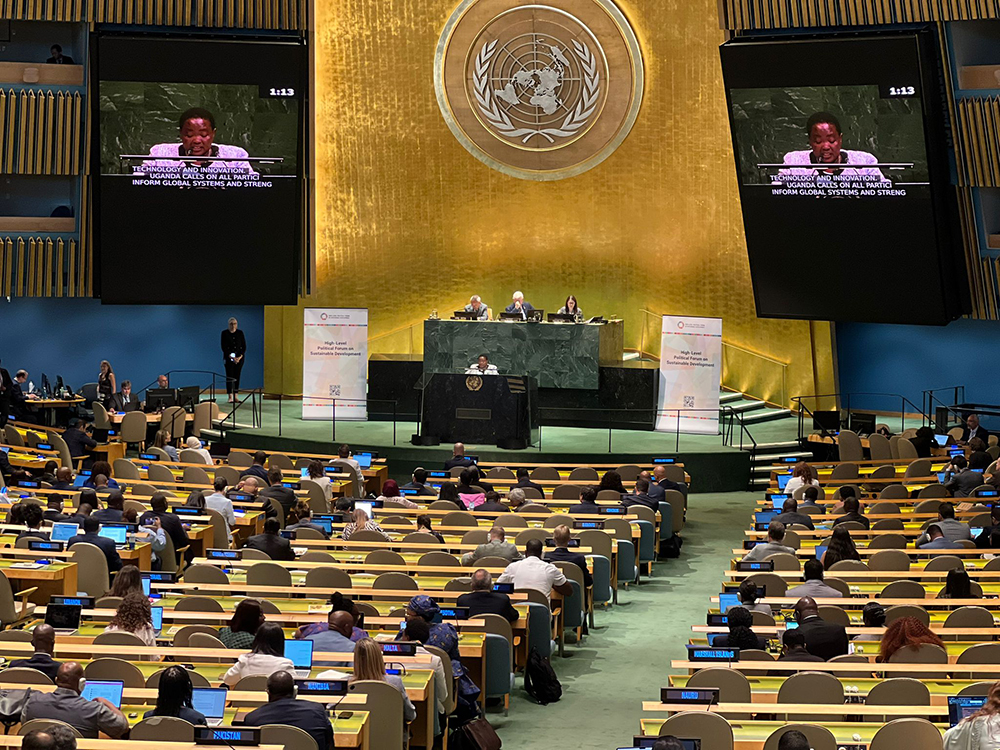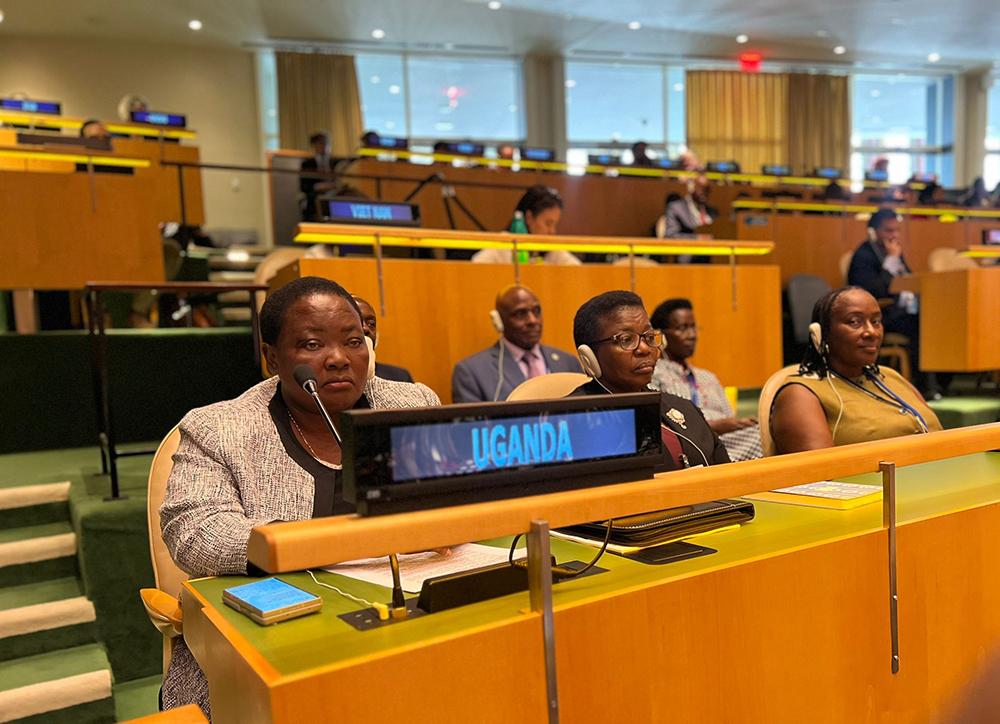Premier Nabbanja at UN, presents Uganda’s position on Sustainable Development Goals
Nabbanja, who led the Ugandan delegation, while addressing the General Assembly, said Uganda has made remarkable strides in ensuring that no person is left behind in SDGs.
Uganda's Prime Minister, Robinah Nabbanja addressing the UN High Level Political forum at the UN Headquarters in New York. (Courtesy photos)
By New Vision Journalist
Journalists @New Vision
________________
Uganda's Prime Minister, Robinah Nabbanja, has urged world leaders to recommit to multilateralism, solidarity and international co-operation to ensure that no person or country is left behind.
Nabbanja made the call on July 21, 2025, during the official opening of the 10th session of the ECOSOC High-Level Political Forum (HLPF), convened under the auspices of the UN General Assembly in New York.
This forum serves as the central platform for reviewing progress on the Sustainable Development Goals (SDGs).
The session was chaired by His Excellency Bob Rae, the President of the 2025 session (July 2024 to July 2025) of the Economic and Social Council.
Bob is currently the Ambassador and Permanent Representative of Canada to the United Nations.
Nabbanja, who led the Ugandan delegation, while addressing the General Assembly, said Uganda has made remarkable strides in ensuring that no person is left behind in SDGs.

“The 80th anniversary of the United Nations and this 10th session of the ECOSOC High-Level Political Forum come at a pivotal time, with only five years left to 2030 and limited global progress on the SDGs. We must now recommit to multilateralism, solidarity, and international cooperation to ensure that no person or country is left behind,” Nabbanja said.
She added that Uganda is implementing its Fourth National Development Plan (NDPIV), which is fully aligned with the SDGs and has localised the Goals in over 135 districts and local governments.
“With strong political leadership and co-ordination our approach has been anchored in inclusive, evidence-based planning and national ownership. Uganda is currently leveraging a strategic “4 ATMs” approach: Agro-industrialisation, tourism, minerals and petroleum, science, technology, and innovation—with emphasis on inclusive growth and job creation,” Nabbanja said.
The premier added that Uganda is also implementing a 10-Point SDG Acceleration Strategy focusing on; education, health, energy, infrastructure, youth employment, digitalisation, data systems, and access to finance through the Parish Development Model, among others.
“Our flagship strategy is to uplift households from subsistence to the money economy. We reaffirm Uganda’s commitment to the realisation of all SDGs and the central transformative role of science, technology, and innovation,” she noted.
Uganda, according to Nabbanja, is urging all partners to act with urgency, reform global systems and strengthen partnerships.
“Let us recommit to achieving the SDGs, leaving no one behind and securing a just, inclusive, and sustainable future for all,” she said.
The Theme of the 2025 United Nations Economic and Social Council (ECOSOC) and the High Level Political Forum (HLPF) is “Advancing Sustainable, Inclusive, Science-and evidence-based solutions for the 2030 Agenda and its SDGs for leaving no one behind”.
The forum is the central United Nations Platform for the follow-up and review of the 2030 Agenda for Sustainable Development Goals and its 17 SDGs.

The 2025 HLPF concluded on July 23 with member states calling for urgent, co-ordinated action to accelerate progress on the Sustainable Development Goals (SDGs). Member States adopted a ministerial declaration that demonstrates the political will to achieve the SDGs for the benefit of all.
Other Ugandan delegates at the session, included general duties minister in the Office of the Prime Minister Kasule Lumumba, the National Planning Authority chairperson, Prof. Pamela Mbabazi, Uganda’s Deputy Permanent representative at the United Nations-Ambassador Godfrey Kwoba and the director SDG secretariat in Uganda Dr Albert Byamugisha.
Held from 14 to 23 July under the auspices of the ECOSOC, the HLPF came at a critical time as countries strive to address intersecting global challenges—from protracted conflicts and economic instability to the escalating climate crisis.
Over two weeks, the Forum brought together over 6,000 in-person participants, including governments, youth, civil society, scientists, the private sector, and other key partners, to share experiences and spotlight innovative, inclusive solutions to advance SDG implementation.
The United Nations says building on the outcomes of the third UN Ocean Conference in Nice and the Fourth International Conference on Financing for Development in Sevilla – that ended with a call to urgently address the $4 trillion annual shortfall in financing needed to achieve the SDGs – the progress made at the HLPF will help inform discussions at the upcoming 80th session of the UN General Assembly.